
Over the past 100 years the Southern Ground-Hornbill has experienced a two-thirds reduction in its range in South Africa. Given the species’ strong site fidelity, this probably translates into a similar decrease in population size. The birds breed cooperatively and groups defend their large territories by giving booming calls at dawn. This behaviour is most pronounced in spring, when the onset of the rainy season triggers breeding.
Since 2000, Fitztitute students have been investigating habitat use and reproductive success of ground-hornbills in the 200 000-hectare Associated Private Nature Reserves (APNR) adjacent to the central Kruger National Park (KNP). Although the project began as a study of the largest cooperatively breeding bird in the world, there was always a strong conservation focus. From the start, massive artificial nest logs were installed throughout the APNR, enabling the number of ground hornbill groups to more than double during the past 20 years. Currently some 30 groups are being studied.
In order to grow the population, we needed to know the actual size of territories, whether they abut or overlap and whether home ranges and habitat preferences change seasonally. We deployed a GPS transmitter on one member of each group to report its position once an hour from before sunrise while the birds are still on their night-time roosts until after they return to roost at the end of the day. These devices obtained more than 25 000 positional fixes for five birds, accurate to within a few metres.
During 2011, BSc Honours student William Wyness analysed the year-round tracking data from four of these ground-hornbill groups. The areas used by different groups ranged from 55 to 103 square kilometres. However, home ranges contracted dramatically during the summer breeding season, when group members regularly visited the nest to feed the incubating female or the chick.
Bu hikaye African Birdlife dergisinin March - April 2020 sayısından alınmıştır.
Start your 7-day Magzter GOLD free trial to access thousands of curated premium stories, and 9,000+ magazines and newspapers.
Already a subscriber ? Giriş Yap
Bu hikaye African Birdlife dergisinin March - April 2020 sayısından alınmıştır.
Start your 7-day Magzter GOLD free trial to access thousands of curated premium stories, and 9,000+ magazines and newspapers.
Already a subscriber? Giriş Yap

EXPLORING NEW HORIZONS
Keith Barnes, co-author of the new Field Guide to Birds of Greater Southern Africa, chats about the long-neglected birding regions just north of the Kunene and Zambezi, getting back to watching birds and the vulture that changed his life.

footloose IN FYNBOS
The Walker Bay Diversity Trail is a leisurely hike with a multitude of flowers, feathers and flavours along the way.
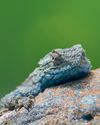
Living forwards
How photographing birds helps me face adversity

CAPE crusade
The Cape Bird Club/City of Cape Town Birding Big Year Challenge
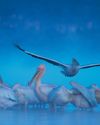
water & WINGS
WATER IS LIFE. As wildlife photographer Greg du Toit knows better than most.
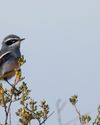
winter wanderer
as summer becomes a memory in the south, the skies are a little quieter as the migrants have returned to the warming north. But one bird endemic to the southern African region takes its own little winter journey.
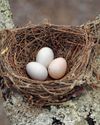
when perfect isn't enough
Egg signatures and forgeries in the cuckoo-drongo arms race

Southern SIGHTINGS
The late summer period naturally started quietening down after the midsummer excitement, but there were still some classy rarities on offer for birders all over the subregion. As always, none of the records included here have been adjudicated by any of the subregion's Rarities Committees.

flood impact on wetland birds
One of the features of a warming planet is increasingly erratic rainfall; years of drought followed by devastating floods. Fortunately, many waterbirds are pre-adapted to cope with such extremes, especially in southern Africa where they have evolved to exploit episodic rainfall events in semi-arid and arid regions. But how do waterbirds respond to floods in areas where rainfall - and access to water - is more predictable? Peter Ryan explores the consequences of recent floods on the birds of the Western Cape's Olifants River valley.
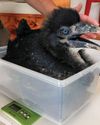
a star is born
It’s every producer’s dream to plan a wildlife television series and pick the right characters before filming.